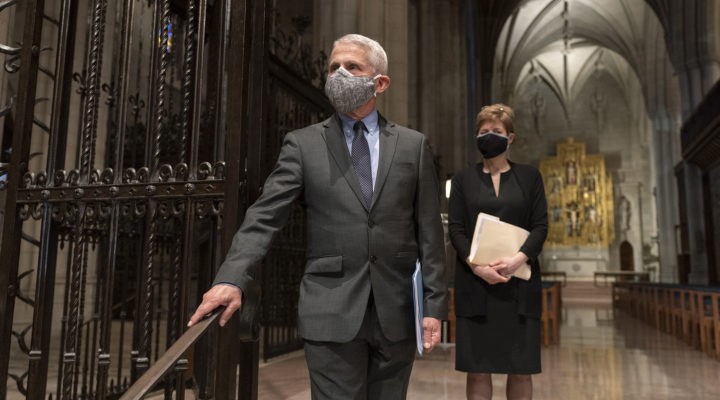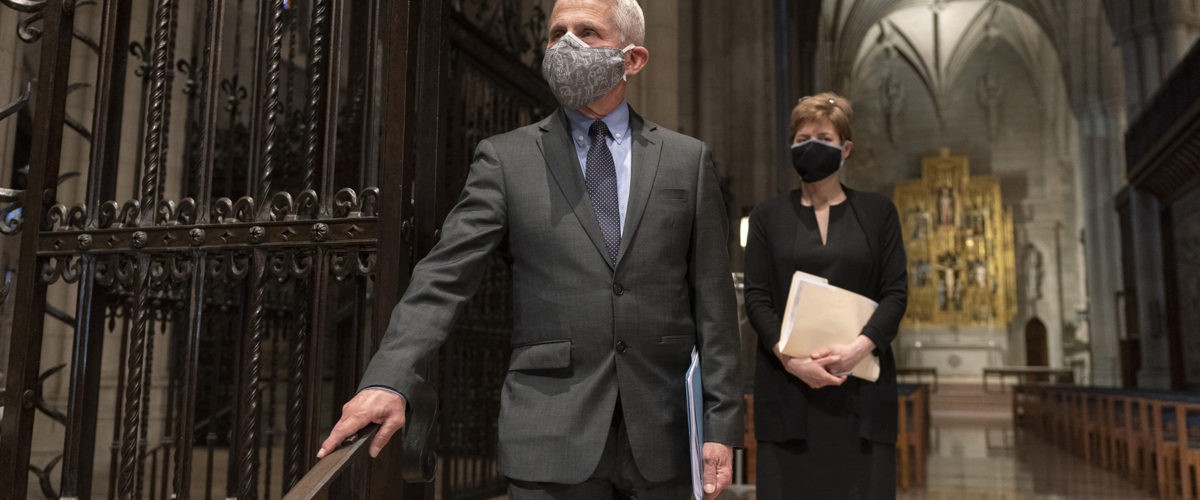While religious ideologies are increasingly cited as toxic and divisive forces in American culture and politics, faith also can heal those wounds when Americans unite around common causes such as hunger, poverty and disaster relief, according to Melissa Rogers.
The executive director of the White House Office of Faith-Based and Neighborhood Partnerships spoke about the unifying power of faith during a recent Brookings Institution webinar.
One of the major goals of the office — reestablished by President Joe Biden after its closure by Donald Trump — is to foster connections between faith-based groups around common interests and causes to help heal wounds caused by religious antagonisms, including white Christian nationalism, said Rogers, who in the past worked with Baptist Joint Committee for Religious Liberty.

Melissa Rogers
“Trying to find more opportunities for people of different faiths and beliefs to work side-by-side really breaks the ice and helps us to see the good in one another in a way that is very powerful,” she explained during the webinar titled, “How faith leaders can help America heal.”
Since its original establishment by former President George W. Bush, and during its continued operation under the Obama administration, the Office of Faith-based Partnerships has worked through misunderstandings about its scope and authority, Rogers said.
In part, those stem from a misunderstanding of what the U.S. Constitution does and doesn’t allow with regard to government and religion.
“The Constitution says that the government can’t back religion and that it can’t be promoting theology — telling people that they should believe one way or another,” she said. “But it also says that people of faith have the right to express and practice their faith and that the government needs to protect those rights.”
For this White House office, that means enabling religious groups to navigate through government agencies and programs to find the resources that could help them in their ministries.
“It would be silly and hostile to religion for the government not to work with faith communities and community groups in these situations,” she said. “So, it’s incumbent on the government to engage with everyone, including faith groups, in this task. And, of course, we have to do that in a way that treats all faiths equally and does not favor one over the other.”
The needs the nation’s faith-based ministries are attempting to meet are painfully real, the White House said in a Feb. 14 announcement of Biden’s executive order opening the office and appointing Rogers as its leader.
“At a time of great challenge and opportunity, the Biden-Harris administration is re-launching this bipartisan initiative. The Partnerships Office’s initial work will include collaborating with civil society to address the COVID-19 pandemic and boost economic recovery; combat systemic racism; increase opportunity and mobility for historically disadvantaged communities; and strengthen pluralism,” the White House said.
As it did under past administrations, the office continues to establish centers in government agencies like FEMA and the Department of Health and Human Services to connect ministries and other grassroots groups to federal resources, Rogers said.
“Faith and community groups are indispensable partners between government and people who are struggling.”
Results already have been seen in the establishment of church-based COVID-19 vaccination sites while “FEMA is making sure that faith and community organizations have information about preparing for hurricane season,” she said.
Rogers added that the office also will help support international aid, recovery and humanitarian missions and is working with partners to address crises around the world. “We just find, here again, that faith and community groups are indispensable partners between government and people who are struggling.”
The office also is charged with combatting hate crimes based on race or religion and received a boost in that mission in May when Biden signed the COVID-19 Hate Crimes Act, which streamlines hate-crime reporting processes and provides prosecutors with extra powers.
“It gives us a bunch of new tools to try to prevent incidents of hate that are unlawful,” she said. The office also is offering assistance to groups seeking to apply for federal nonprofit security grants, which are available to at-risk groups.
Rogers said her office may be able to play a role in countering the religiously driven polarization of American life.
“We recognize that people feel fear on different sides, that the way they would like to live their lives is being threatened,” she said. “Everybody is scared about what the other side might do to them if they get political power.”
The situation has encouraged the office to seek ways to let Americans name their fears before policy decisions are made, even if they oppose the president’s decisions.
It’s about “really listening to them … so we can give due respect to different views and learn something and sometimes change our views,” she said.
“Finding ways to serve together across our differences brings us back to where we started from and can be a relationship builder.”
And the service aspect can achieve similar results. “Finding ways to serve together across our differences brings us back to where we started from and can be a relationship builder.”
Rogers said she is optimistic that the gulf between Americans can be bridged through faith-based partnerships.
“I can’t get away from being hopeful because every day I have people reaching out to me … saying, ‘How can I help?’ Or, ‘Here’s what I’m doing’ and, ‘Do you think by combining our efforts we could make this effort more than the sum of its parts?’”
Related article:
Biden reestablishes Faith-based Partnerships Office and names Melissa Rogers to lead it


